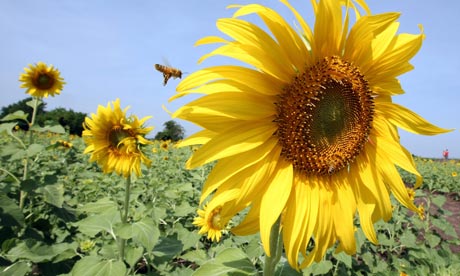Three neonicotinoids, the world's most widely used insecticides would be forbidden across the continent for two years
After failing to get a ban in February 2013, the EU will certainly pursue its lobby to ban clothianidin, imidacloprid and thiametoxam.
Imadacloprid and Thiametoxam are marketed in Mauritius and therefore our vegetables and fruits exporters should take EU's step with concern and adapt to this new situation fast.
The Commission's proposal is a response to the European Food Safety Authority's scientific report which identified "high acute risks" for bees as regards exposure to dust in several crops such as maize, cereals and sunflower, to residue in pollen and nectar in crops like oilseed rape and sunflower and to guttation in maize.
The Commission proposed the following to Member States:
- amend the conditions of approval of the 3 NNI in order to restrict the use o nly to crops non attractive to bees and to winter cereals (as dust exposure during autumn is not considered a major issue).
- prohibit the sale and use of "seeds treated" with plant protection products containing these active substances (provision not to apply to treated seeds of plants non attractive to bees and to treated seeds of winter cereals).
- both measures referred to in points 1) and 2) to be implemented at the latest by 1 July 2013 (thus not affecting the forthcoming sowing season for maize).
- prohibit the sale and use to "amateurs". Only professional uses to remain allowed.
- To review of both measures by the Commission after 2 years.
Commission to review the conditions of approval of the 3 neonicotinoids (clothianidin, thiametoxam and imidacloprid) - as soon as new information is available - to take into account relevant scientific and technical developments. - Exceptions to be limited to the possibility to treat bee-attractive crops in greenhouses at any time and in open field only after flowering.
The Commission put the text to the vote and NO QUALIFIED MAJORITY WAS REACHED, either in favour or against of the text.
THE COMMISSION TAKES NOTE OF THE MEMBER STATES' RESPONSE TO ITS PROPOSAL BUT REMAINS COMMITTED TO AMBITIOUS AND PROPORTIONATE LEGISLATIVE MEASURES.
Source: http://ec.europa.eu

